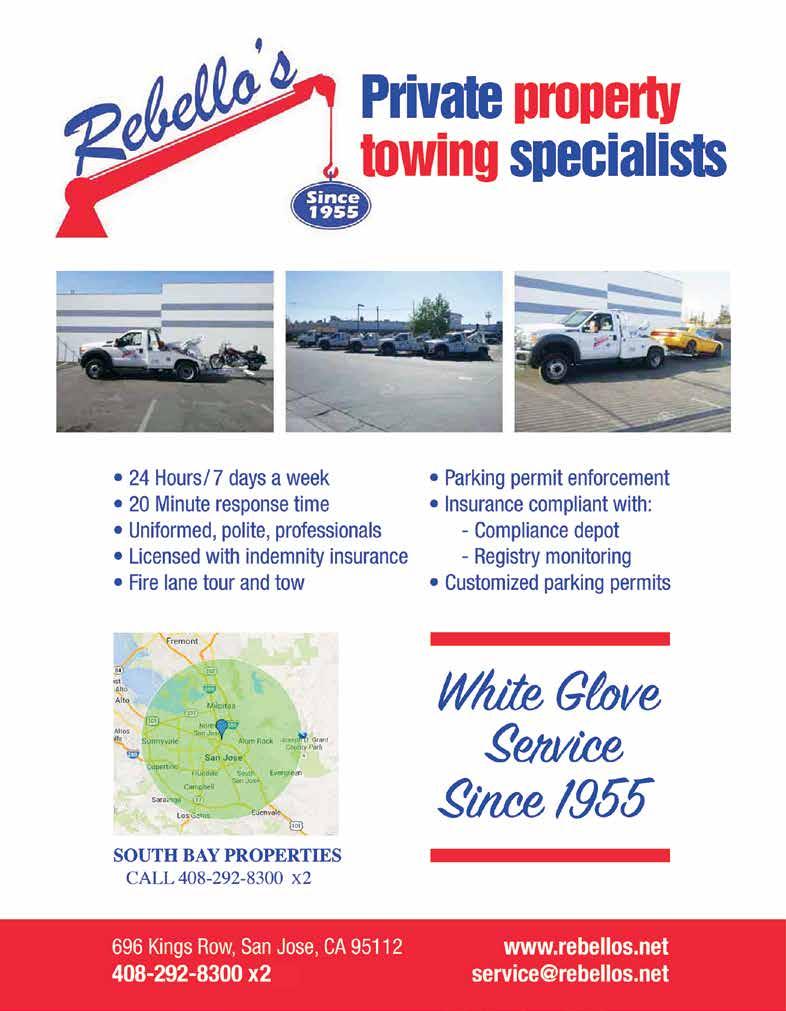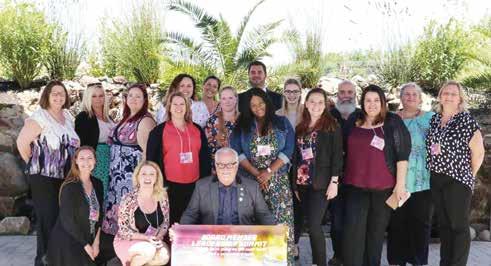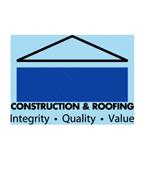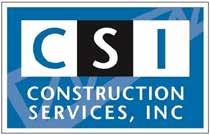
SERVING HOA BOARD MEMBERS & HOMEOWNERS ISSUE THREE 2022 PROFESSIONAL SERVICE PROVIDER DIRECTORY Find HOA experts quickly and easily PAGE 36 INDECISION & APATHY IN HOAs The very real dangers in choosing to do nothing PAGE 20 The value of financial forecasting in an HOA PAGE 14 FUNDING FOR THE FUTURE Combating Homeowner Apathy in an HOA 2022 COMMUNITY MANAGEMENT SHOWCASE & RESOURCE DIRECTORY


www.HeritageBankofCommerce.bank • Treasury Services • Web-Based Payment Portal • Integration Services • Operating and Reserve Accounts • Local Lockbox Processing • HOA Loans • Placement Services for Excess Reserves Your HOA Banking Specialist Supporting Member of Give us a call today 844.489.0999 A Dedicated HOA Department Here For You Member FDIC Equal Housing Lender Equal Housing Lender Equal Housing Lender
MISSION STATEMENT
Fostering a better quality of life in community associations through education, advocacy and networking.
Echo 5669 Snell Ave., #249 San Jose, CA 95123 408.297.3246 | info@echo-ca.org www.echo-ca.org
BOARD OF DIRECTORS & OFFICERS
PRESIDENT Adam Haney
VICE PRESIDENT
Sandra Long
TREASURER
Karl Lofthouse
SECRETARY
Mark T. Guithues, Esq.
DIRECTORS
Jerry L. Bowles
Brian Campisi
Rolf Crocker
Sarah Dunia
John Gill, Esq.
David Hughes
David Levy, CPA
Katrina Solomatina, Esq.
Wanden Treanor, Esq.
CHIEF EXECUTIVE OFFICER
David Zepponi dzepponi@echo-ca.org
OPERATIONS MANAGER
Connor Zepponi connor@echo-ca.org
MEMBERSHIP & SALES MANAGER
Jacqueline Price jprice@echo-ca.org
ADMINISTRATIVE ASSISTANT
Patty Kurzet pkurzet@echo-ca.org
The Echo Journal is published quarterly by the Executive Council of Homeowners (Echo). The views of authors expressed in the articles herein do not necessarily reflect the views of Echo. We assume no responsibility for the statements and opinions advanced by the contributors to the magazine. It is released with the understanding that the publisher is not engaged in rendering legal, accounting or other professional service. If legal advice or other expert assistance is required, the services of a competent professional should be sought.
Acceptance of advertising does not constitute any endorsement or recommendation, expressed or implied, of the advertiser or any goods or services offered. We reserve the right to reject any advertising copy or image.

© 2022 Executive Council of Homeowners (Echo) All rights reserved. Reproduction except by written permission of Echo is prohibited.
Echo member information is never released to any outside individual or organization, unless agreed to by the member.
Click to Visit the Echo YouTube Channel
HOA Education On Demand!
Get more from your Echo membership
Echo Members have exclusive access to our entire library of HOA-focused educational programming including Community Conversations, Educational Seminars, Workshops, Ask the Attorneys and Ask the Experts. There’s also limited free content available to HOA homeowners and board members.
The presentations listed below are free to HOA homeowners and board members. Click a title to watch!
Community Conversation: The Rulemaking Process, Investigations, Hearings & Enforcement
Legal Resource Panel: Case Law Update – July 2022
Community Conversation: Animals, Parking and Other Enforceable Rules
Ask the Experts About Insurance – June 2022 Avoiding HOA Reserves Quicksand Board Ethics and Decorum
After the Dust Settles: Surfside Disaster & Case Law Exposed Breaking Up Is Hard to Do
Board Decision Making: When Is Enough Enough for a Decision?
For www.echo-ca.org
ECHO journal | ISSUE THREE 2022 3
more information visit






4 ISSUE THREE 2022 | ECHO journal Features CEO’s Message: Your Echo Membership Welcome to Our New Professional Community Management Resource Directory 8 Tools of Engagement: Winning the Fight Against Homeowner Apathy BY JOHN CLIGNY, AMS, PCAM, CCAM-HR EMERITUS 14 Funding for the Future: Why Financial Forecasting Is Essential for HOAs BY DAN STONDIN 20 The Real Dangers of Indecision and Homeowner Apathy BY DAVID ZEPPONI 28 Communication: The Most Important Tool Available During HOA Construction Projects BY DAVID MANGINI, ESQ., AND NICK BERG, PCAM 32 Considering Rules Compliance and Enforcement BY MATT MEADORS, CMCA, AMS Happenings 32 20 14

ECHO journal | ISSUE THREE 2022 5
Raison d’Etre – The Reason for
What a beautiful phrase, raison d’etre (reason for being). It every board member should consider and collectively agree.
Your Echo Membership Just Got an Upgrade!
Dear Echo HOA Community Members:
The phrase engenders humanity. The words roll from one’s stark business senses and adds the element of humanity to a board: Strategic planning, execution and evaluation; mission management. The business realities should be reflective of common values of individuals in the community.
• Simplified event registration with no processing fee

Thank you for being a supporter of the Executive Council of Homeowners (Echo). The pandemic years have been particularly challenging for us all – including Echo. During this period, HOAs and Echo learned new ways of doing business. Echo significantly expanded its member services and educational offerings. We modernized our back-end management systems and adapted to a new Zoom world. Echo’s billing module is now installed and working efficiently.
Our new membership management system is up and running too. We cleaned and updated membership information, connected the membership system to our accounting system, and added a new payment processor. You or an authorized individual (manager) may now self-manage your membership profiles and board updates in our system simply and easily – with help from Echo – to ensure we have current membership information to deliver our services in a timely manner.
• Auto-renewal of membership
Communities are imperfect – because they are made of humans. relating. Humans using. Human living. Basically, humans being being human, communities sometimes forget that management establish norms for a successful community. In a sense, the the community. Its purpose is to establish order and elevate progress and pace by establishing norms and constraints to benefit all.
• Discrete account management for online store purchases, event registrations, and individual profile management
Also, the automation of our back-end processes will free up staff time to better serve you and allow us to generate valuable educational curriculum, update materials, assist with HOA-specific issues, and grow the association. We also have begun a major renovation of the Echo website, beginning with its Professional Directory, which improves your ability to access specialized HOA industry providers. You will want to keep a copy of the Echo Journal Showcase & Directory handy as a reference source of professionals serving HOA communities.
It seems apparent that board leadership must understand owners in order to orchestrate a sense of community and generate and protect community values. The purpose of a board, therefore, build community based on common values for the good of
In addition, our new integrated system allows the following:
It takes time to orchestrate a community. It takes time to know time to listen to the voices and build a vision reflective of community and you will be more effective as a board member and satisfied your reason for being on the board.
• Targeted mailings of interest to you and specific individuals in your HOA
We love our members! And Echo wants to make sure you receive the best service and education possible with our limited resources. In 2023, we will be celebrating our 50th anniversary. Thank you for continuing to support the nation’s oldest HOA board member focused and supported association. Your trust in us is deeply appreciated. The success of Echo is due to you, our valued community members.
ECHO is committed to helping homeowner boards and residents ing and advocacy – this is our “raison d’etre”.
• Improved utilization of your membership
• Greater member peer-to-peer networking, especially in our successful board-focused events such as the Board Members’ Club and our regional Resource Panel meetings
David Zepponi Executive Director CHIEF EXECUTIVE OFFICER

6 ISSUE THREE 2022 | ECHO journal CEO’S MESSAGE
ECHO
OMNI COMMUNITY MANAGEMENT, LLC
OMNI Community Management, LLC is a service-oriented community association management company specializing in effective asset management and efficient building and landscape maintenance. Our goal is to assist the board of directors using state-of-the art equipment and management best practices, to maintain the association’s assets.

Management of assets comprises not only the financial portfolio, but also the buildings and grounds, property values, and most importantly the residents’ perception of their quality of life while residing within your community. Your homeowners will appreciate the pride of ownership and the security of knowing that your community is managed to attain the highest property values possible while maintaining financial security. Notifications are especially important in community association management. Through personalized service, attention
to detail, and over thirty years of effective management experience, OMNI Community Management, LLC has satisfied the continued need for responsive management of communities within Northern California.
Individual attention has made OMNI Community Management, LLC a sought after management company because of all that it offers. Enjoy the benefits as other homeowner associations do, and contact us today for more information and a management cost proposal.
Our Mission Statement: T3 Trust, Team, Transparency – these are the values that drive OMNI Community Management, LLC in every aspect of our work, both internally and with our clients. The Power of T3 defines OMNI in the following ways:
Trust – Everything we do is predicated upon trust. Trust is extraordinarily fragile,
so we work diligently to cultivate a trust relationship with our clients, our vendors, and with each other.
Team – The recognition that everyone – board, management, and vendors –have a role to play in order to achieve a successful outcome for any community association.

Transparency – That you know what we know and, if we make a mistake, we will self-disclose and make it right, even to our own detriment.
Why Choose OMNI?
OMNI Community Management, LLC has more than 30 years of experience managing homeowner associations with an emphasis on communications and personalized service. OMNI is an Accredited Community Management Company (ACMC), and our management staff consists of Certified Community Association Managers (CCAMs) through the California Association of Community Managers (CACM), with a dedicated staff of administrative professionals. Information requests are generally responded to within 24 hours. We hope we can help make your community one of the finest in Northern California. We encourage you to consider contracting with OMNI for your community’s management needs. You can be assured of reliable, capable, and exceptional service that will make you glad you did.
Rolf M. Crocker, AMS, CAMEx, CCAM (877) 700-6070 omnicommunities.com
Over Years of Providing Responsive Community Management
Trust, Team, Transparency – these are the values that drive OMNI in every aspect of our work, both internally and with our clients.
ECHO journal | ISSUE THREE 2022 7 COMMUNITY MANAGEMENT SHOWCASE ADVERTORIAL
30
Effective,
EAST BAY & GREATER SACRAMENTO
rolf.crocker@omnicommunities.com
ENGAGEMENT

8 ISSUE THREE 2022 | ECHO journal
BY JOHN CLIGNY,
TOOLS OF ENGAGEMENT

Winning the Fight Against Homeowner Apathy
A common complaint from homeowner association boards of directors and community management professionals is an apathetic membership and lack of homeowner engagement. Apathy is defined as a “lack of interest, enthusiasm, or concern,” and member engagement can be defined as keeping members informed, educated, and motivated to make meaningful contributions to their communities. In the context of homeowner association boards, committees, and management, member engagement is an effective tool for combating member apathy. Member engagement should inspire. These are the objectives of member engagement: Inform Educate Motivate
Informing members. In homeowner association communities, information can take many forms. Examples include board meeting notices, agendas, and minutes. There are also annual budget and policy disclosures,
•
•
•
Continued on page 10 ECHO journal | ISSUE THREE 2022 9
AMS, PCAM, CCAM-HR EMERITUS
Tools of Engagement

Continued from page 9
insurance disclosures, reserve study summaries, and reminders of rules, regulations, and board policies. Meaningful information can also include notices of upcoming projects, landscape maintenance objectives, social opportunities, and surveys of member preferences.
Educating members. Homeowner associations are complex and highly regulated nonprofit organizations. Think about what key policies and strategic plans members can be educated on. Consider inviting key vendors and service providers to present topics of interest to members, such as insurance professionals, CPAs, attorneys, reserve specialists, and landscape maintenance service providers. These vendors can provide meaningful information
to members and give them a deeper understanding of the issues “under the hood” of the association.
Motivating members. The most challenging objective of member engagement is motivating members to get involved. Ideally, informed and educated homeowners who are presented with an opportunity to be involved more deeply in the governance of their HOA will opt in to participate. However, opportunities need to be presented regularly and often. Motivation is inspirational and aspirational. Board members and management professionals need to take time to develop opportunities for service within the community. Examples of opportunities are hosting a social event, organizing a national night out, welcoming new owners and members, or participating on
committees such as architectural, landscaping, finance and budget, or others.
Successfully motivating members to be a part of the governance of their community creates a pipeline of members that are knowledgeable about the association and willing to run for the board of directors.
The “80-20 rule,” otherwise known as the Pareto principle, asserts that 80 percent of outcomes, or outputs, result from 20 percent of the causes, or inputs. For example, in an average-size HOA in California of 50 units or lots, one can assume that about 10 members are engaged at any one time to produce about 80 percent of all outcomes affecting the other 40 unit or lot owners. Member apathy is self-destructive and often the result of members feeling powerless to provide input or effect meaningful change in their communities.
Members can be engaged using these methods:
Town hall meetings. Town hall meetings highlighting a specific topic of interest are an effective and nonthreatening way to invite and engage members to speak up. Town hall meetings are not board meetings and are not subject to the Open Meeting Act. They are a practical way for board members and management professionals to assess member sentiment and preferences on any number of critical community topics. Throw in coffee and donuts or wine and cheese to encourage participation.
Successfully motivating members to be a part of the governance of their community creates a pipeline of members that are knowledgeable about the association and willing to run for the board of directors.
10 ISSUE THREE 2022 | ECHO journal Continued on page 12
CID LLC
Since its inception, CID Consortium, LLC (CIDC) strives to provide excellent financial and operational guidance to communities, board members, managers, and owners of communities big and small in an everchanging environment.


We believe in building relationships by doing our business transparently and keeping our clients informed. Before sending a proposal, we take the time to uncover what success looks like for your community. Once we are aligned, we will propose a combination of Governance, Finance, and Organizational services specific to your unique needs.
Owners and operators Donald (”Don”) W. Haney, CPA, and Adam P. Haney, CPA, are well known for their role in developing homeowner association industry standards and technology. Don originally started in the industry in 1979 when he formed two corporations: CEO, Inc. and Haney Accountants, Inc. Both organizations laid the foundation for CIDC led by Adam P. Haney, CPA.
Today, CID Consortium, LLC has grown into a team armed with passion and expertise for improving the community living experience of its members. Pulling from 45 years of business, CIDC has accumulated a wealth of experience and expertise through a relentless pursuit of perfection. Fueled by technology and incessant process improvement, the team engages with members on a rich platform, ensuring the community living experience continues to be exceptional. For more information about the services we provide, please visit our website at cidcllc.us.
Pulling from more than 45 years of business, CIDC has accumulated a wealth of experience and expertise through a relentless pursuit of perfection. 919 Reserve Drive Roseville, CA 95678 (888) 786-6000 cidcllc.us
ECHO journal | ISSUE THREE 2022 11
CONSORTIUM,
STATEWIDE
COMMUNITY MANAGEMENT SHOWCASE ADVERTORIAL
Continued from page 10
Member preference surveys. Member surveys are an effective tool for engaging members and soliciting member sentiment and preferences on subjects of board consideration. The best surveys are single-subject, specific, and limited to 5-10 questions.

Committee appointments. Committees can be useful for finding future board members. Committees can be standing or ad hoc and reflect areas of concern for members. Be sure to create a committee charter specifying committee duration, number of members, appointment process, and limits of authority. Typical HOA committees include finance

and budget, architectural control, landscaping, safety and security, nominating, and social.
Leverage vendors and service providers. Use vendors and service providers as subject matter experts to inform and educate community members on projects and critical topics affecting the community. Reserve funding, insurance, and landscape maintenance are always good topics of interest. If the association is dealing with siding and dry rot repairs or balcony and elevated walkway inspections, consider inviting an architect, engineer, or construction manager to present information and a Q&A for concerned members and residents.

Engaging members must be a strategic objective of the board and management professionals. Opportunities for engagement must be specific and included on the community calendar.
The only way to manage member apathy is by the deliberate engagement of members through information, education, and motivation.
John Cligny, AMS, PCAM, CCAM-HR Emeritus, is a veteran portfolio manager and community association management executive. As co-founder of Association Consulting Group, John is a trusted advisor primarily focused on educating and advising community association board members on effective governance to promote a positive public opinion of homeowner associations and community management. John is a frequent speaker and panelist on a wide range of community association topics and issues. Engagement

12 ISSUE THREE 2022 | ECHO journal The Tools of Engagement Continued from page 11 We counsel: • Condominium Associations • Planned Unit Developments • Mixed Use Associations • Commercial Associations We provide general counsel to Associations including the following services: • Construction Defect and Civil Litigation • Dispute Resolution • Governing Document Interpretation • Governing Document Revisions • CC&R and Rules Enforcement (408) 345-4000 http://wm-llp.com ACE Property Management provides a complete range of management services to homeowners associations. Professional Service Delivered Personally. 408.217.2882 | acepm.net
Tools of
Paper Mail? Email? Both? HELM is a simple app for Homeowners to register how they want their Association communications.


Sharing Preferences? HELM improves the privacy protection of your Homeowner member lists.

Mailing & Email Lists? HELM helps control your mailing costs and makes your communications easy to manage.


ECHO journal | ISSUE THREE 2022 13
www.biminicorp.com/helm-info HOA Document Management Done Right ☑ INSTANT DELIVERY OF ESCROW DOCUMENTS ☑ FULL VERSION IS FREE FOR ASSOCIATIONS TO USE ☑ “NO HASSLE” CROSSOVER FROM YOUR EXISTING SERVICE ☑ CONTROL YOUR COSTS AND YOUR PROFIT CENTER. www.biminicorp.com/docline BIMINI Corp www.biminicorp.com email: esales@biminicorp.com phone: 530.205.6912 Simple, Small Scale Solutions with Big Impacts SB 392: Are You READY? New legislation for January 2023 requires Associations to register mailing preferences for all Owners. Bimini Solutions Call, Click or Email - esales@biminicorp.com - www.biminicorp.com - 530.205.6912 Echo Professional Service Provider HELM was created to register and manage Homeowner preferences. Made by Managers. For Managers.
FUNDING FUTUREFOR THE

FUTURE

WHY FINANCIAL FORECASTING IS ESSENTIAL FOR HOA s
BY DAN STONDIN
On June 24, 2021, at approximately 1:22 a.m. EDT, Champlain Towers South, a 12-story beachfront condominium in the Miami suburb of Surfside, Florida, collapsed. Ninety-eight people lost their lives. Only six years earlier, in Berkeley, California, a balcony collapsed and killed six students who were celebrating a 21st birthday shortly after midnight. While many factors contributed to these tragedies, deferred maintenance and inadequate inspections of community-owned property played a significant role. Bills and new laws like California SB 326 / CA Civil Code 5551 and SB 4-D in Florida aim to bring more physical checks and financial oversight to HOAs and their management teams. And it’s not just the government becoming more aware of the dangers of poorly maintained physical and financial HOA assets. This year, Fannie Mae and Freddie Mac, two of the most prominent players in the mortgage market, added a new questionnaire to condo loan applications. This addition will likely protect them from purchasing loans on potentially dangerous buildings. A positive side effect for homeowners may be that it generates demand for a higher standard of condo care and management across the country.
Board members have an invaluable role to play alongside these new laws to ensure that their communities are desirable and safe places to live. Building maintenance is complex and expensive, and saving for longer periods of time while deferring replacements is a recipe for disaster.
ECHO journal | ISSUE THREE 2022 15
Continued on page 16
While getting out of a financial hole is essential, avoiding getting into one is a much more effective way to operate.
Funding for the Future
Continued from page 15
More often than not, HOAs inherit mistakes, and many start at a disadvantage. The initial “plan” prepared by developers and submitted to the California Department of Real Estate isn’t always as thorough or accurate as the one often required by law three years later. Assessments are unfortunately kept artificially low in the first year to encourage property sales and are rarely corrected until it’s too late to get back on track quickly. Another factor contributing to high-risk HOAs is continuing to operate against a once-accurate plan. California law requires that HOAs conduct a visual study of the entirety of an association’s components every three years and produce a financial update every 12 months in an attempt to stay on track. These reserve studies are a snapshot of the health of an association and include a plan for collecting and spending association funds over 30 years. Unfortunately, we all know life rarely goes as planned; things break before the anticipated replacement date, materials and labor cost more than expected, and out of left field, inflation skyrockets because of an unimaginable global pandemic. Forgetting, or simply not conducting, these essential revisions to an association’s long-term savings plan can lead to dramatic assessment increases and significant special assessments.
A common goal among HOAs is to be “100 percent funded.” While this is a fantastic ambition, it is unrealistic for many associations. A more attainable goal might be to have a strong reserve, where the likelihood of large special assessments is low. There
is a shared opinion in the reserve analyst community that funding above 70 percent can be considered strong, and anything below 30 percent should be regarded as weak. The term “100 percent funded” is often mistakenly interpreted as being the amount required to replace all commonly owned components at once. In fact, all components begin to deteriorate after they are installed, each with a life expectancy and associated replacement cost. For example, an analyst might estimate a condominium roof to last 25 years and to cost $250,000 to replace. An HOA must save $10,000 each year in preparation for its replacement. In reality, it’s not exactly $10,000 a year, because inflation has to be accounted for, but for simplicity’s sake, it’s ignored in this example. If applied to all components in the community, this same saving principle would result in the association being 100 percent funded each year even though the total replacement costs for the components haven’t yet been collected! Instead, associations tend to ensure that they have enough money saved each year to cover the replacements in that year while saving as much as is socially acceptable for the future. It’s literally a balancing act, and equilibrium is difficult to attain without financial forecasting tools or expertise. While this method can work for years with few or inexpensive replacements, it quickly breaks down when multiple or significant expenses are due.
Do HOAs need financial forecasting software? Absolutely. For-profit companies use tools like these and rely on them to ensure that their business can continue to pay salaries, keep up with operating costs, and save for the future. Sound familiar? Running “what if” scenarios is a fantastic way to avoid surprises and present options to a broader audience, reducing the decision-making burden for individual board members. Humans are innately visual. It can be complicated to glean meaning from competing tables of financial information unless the objective or answer is clearly defined. Many financial forecasting tools communicate the same information through data visualizations or derived insights.
All the data needed to generate financial models and forecasts are locked up but available in an association’s reserve study. These studies and the suggested plans are incredibly valuable but often challenging to implement. Board members are not experts and, by law, are volunteers; even reviewing upcoming replacements and kicking off projects can be difficult. Simple calendar reminders can go a long way. Why not try “Alexa … remind me to review
16 ISSUE THREE 2022 | ECHO journal
ongoing and future HOA replacement projects each month.” Simple project management software, by design, typically requires someone to be assigned to or lead projects. This sounds obvious, but unless things are made explicit, HOA board members can quickly lose track of who is supposed to be doing what, and replacements can fall through the cracks.
Considering that 53 percent of the U.S. population lives in homeowner associations, and 60 percent of condos in the U.S. are now over 30 years old and haven’t been adequately funding their reserves, a storm is on the horizon. When a community reserve is underfunded, one of the only tangible ways to get back on track is to levy a special assessment on its homeowners. While the term “special assessment” carries many negative connotations, it can be a very effective tool to improve an association’s financial health quickly. The problem most people have with special assessments is usually less about the finances and more about the homeowner’s shock that a special assessment is necessary in the first place. Why now? Why didn’t we know about this sooner? Who came up with this assessment figure? Using software can reduce the shock factor and answer such questions
by presenting the effects of inaction to improve an association’s financial situation.
Transparency, regular monitoring, and effective communication methods that engage and inform homeowners makes them much more likely to appreciate and empathize with the HOA board in challenging times. While getting out of a financial hole is essential, avoiding getting into one is a much more effective way to operate. Responsible board members must often make difficult and unpopular decisions, but the consequences of not making these decisions can be devastating.
Dan Stondin, CEO of homey.io, is a product designer and entrepreneur who works with homeowners’ associations and their board members to elevate technology and unlock the true value of being part of an HOA. Dan knows that software can simplify and support the duties performed by thousands of volunteer board members. He has founded successful technology companies and helped build cutting-edge software for over a decade.
Hi, my name is Kevin Boland and we have probably met at many ECHO panels over the years. I offer Guaranteed Replacement Coverage so smart boards can protect buildings from wild/urban fires no matter what the cost is to rebuild today!
Hi, my name is Kevin Boland and we have probably met at many ECHO panels over the years. I offer Guaranteed Replacement Coverage so smart boards can protect buildings from wild/urban fires no matter what the cost is to rebuild today!

Give me a call for a professional bid on your HOA insurance and save!

Kevin Boland, LUTCF, AIC, CIC
Kevin Boland, LUTCF, AIC, CIC

CA License # 0C33871
CA License # 0C33871
1202 Grant Ave., Ste. E, Novato, CA 94945
1202 Grant Ave., Ste. E, Novato, CA 94945
Give me a call for a professional bid on your HOA insurance and save! 415.898.4370
ECHO journal | ISSUE THREE 2022 17 Call 415.898.4370 today! kboland@farmersagent.com www.KevinBolandInsurance.com Restrictions apply. Discounts may vary. Not available in all states. See your agent for details. Insurance is underwritten by Farmers Insurance Exchange and other affiliated insurance compan es. Visit farmers.com for a complete listing of companies. Not all insurers are author zed to provide insurance in all states. Coverage is not available in all states. I HAVE OUTSTANDING RATES AND HOA COVERAGES.
Call
today! kboland@farmersagent.com www.KevinBolandInsurance.com Restrictions apply. Discounts may vary. Not available in all states. See your agent for details. Insurance is underwritten by Farmers Insurance Exchange and other affiliated insurance companies. Visit farmers.com for a complete listing of companies. Not all insurers are authorized to provide insurance in all states. Coverage s not available in all states. I HAVE OUTSTANDING RATES AND HOA COVERAGES.

18 ISSUE THREE 2022 | ECHO journal
CHRISTISON COMPANY

Christison Company is a full service CID (Common Interest Development) management and consulting firm. Our office in Pleasanton, California has three in-house departments staffed with professionals specializing in areas of association operations and management. In-house departments include: Management Services, Financial Services, and Projects & Maintenance Services.
Originally, Christison Company had its roots in the public sector consumer interests of the common interest development industry. Our founder, Douglas B. Christison, was one of the original founders of Echo (Executive Council of Home Owner), established in 1973 by volunteer directors of homeowners associations. Mr. Christison was elected as
Echo’s first President and first Executive Director. Later, in 1976, Mr. Christison was appointed by Governor Jerry Brown’s administration to serve on the Department of Real Estate’s (DRE) Subdivision Advisory Committee.
Today, Christison Company is one of the most respected companies in the industry thanks to our simple formula of treating people right. At Christison Company we all share the same core principles of integrity and high ethical standards.
Over 41 years of experience managing community associations enables us to provide the management experience and professional abilities that your community deserves. With our commitment to

excellence and service, we are certain we will meet your needs, consistently, today and in the future.
We take pride in providing superior customer service to our boards and homeowners every day. We value every one of our associations, respect their unique needs and desires, and offer personal care each community deserves!
We offer comprehensive and tailored management services, including but not limited to:
• Management
• Financial
• Maintenance
• Consulting
• Builder & Development
• Governance
• Website/Online
At Christison, we firmly believe that communication is a cornerstone of building long-standing relationships. We strive for accurate and timely communication through varied media including community websites, written correspondence, and telephone.
Please feel free to contact us at your earliest opportunity at 925-371-5731. We would be happy to schedule a meeting with your board of directors to share how we can help you with the day to day stress of community management.
Corporate Headquarters
Henry Romero, CCAM, CMCA, AMS, PCAM 7901 Stoneridge Drive, Suite 222 Pleasanton, CA 94588 (925) 371-5731
hromero@christisoncompany.com christisoncompany.com
Our formula for success in community management is simple: We treat people right.
Our philosophy is simple: we believe in quality, service, performance, uncompromising integrity and taking responsibility.
ECHO journal | ISSUE THREE 2022 19
NORTHERN CALIFORNIA
COMMUNITY MANAGEMENT SHOWCASE ADVERTORIAL
BY DAVID ZEPPONI, ECHO CEO
The Real Dangers of Indecision & Homeowner Apathy




In the wake of the Surfside, Florida, Champlain Towers South collapse where 98 people died, a wave of legislation and new policy is gripping HOAs across America. There are extreme examples across the country of what can happen if a community isn’t engaged with the board and management (and financially supportive of it), and when a board fails to act quickly to cure issues with community assets.
Boards are charged with protecting those assets, but not only that; there is an implicit duty to protect the life, health, and safety of its community members, visitors, and residents. But often, HOA boards are placed in an untenable position due to a host of issues including homeowner apathy, unwillingness to make tough decisions about things such as special assessments, insipid leadership resulting in inaction, expert failures, and crisis of trust in the management firm, attorneys, community factions and board leadership. These and a host of other dysfunctions can lead to catastrophic failures – but in most instances, the failures are not catastrophic, especially in the short run. However, failure to properly address and repair, maintain, or replace an asset can leave a community at risk and lead the HOA to a financially untenable situation or worse especially in the long run.
There is little question that the board is responsible for maintaining the common areas and the property values of the community. The board is required to use expert opinions and reasonable prudence when making decisions about the HOA. So, what can the board do to ensure they are doing their best to maintain property values while building a quality community?
Here are a few thoughts:
20 ISSUE THREE 2022 | ECHO journal
1. WHEN LIFE OR HEALTH ARE AT RISK DUE TO THE CONDITION OF AN ASSET, THE BOARD MUST ACT QUICKLY TO ADDRESS THE ISSUE. They can call an emergency meeting to decide what to do and then reallocate reserve and operating funds or levy a special assessment. These are often unpopular decisions, but they are necessary to protect people.
2. RESERVE ANALYSTS CAN BE A VALUABLE RESOURCE FOR BOARDS. Reserve analysts should be held accountable for their work. They should clearly explain what is included and what is not in the reserve study. Projecting over a 30-year period is not an easy exercise. The board should know what assumptions and methodology are being utilized in the study. This will allow board members the ability to adjust reserves in case of unanticipated economic disruptions (e.g., COVID, the Putin War, the housing crisis of 2008–2010, new laws that drive expensive inspections, etc.). It is important that the board has a good ongoing relationship with its reserve analyst so they can help their clients adjust budgets when a disruption will materially affect their estimates.
3. RUN THE HOA BUSINESS LIKE A BUSINESS. It is important to utilize processes and systems that allow the HOA to better predict the maintenance and replacement of important community assets. It is mindboggling that there are so many tools in the marketplace that can help HOAs manage communities that are not being deployed. For example, there are simple and inexpensive tools that will forecast when significant maintenance or replacement is due, within a certain confidence interval.
Software will instantaneously predict what the assessments should be, taking in considerations over a multi-year period, to avoid a special assessment and to optimally maintain the asset. The marketplace is booming with inexpensive solutions to make HOA board life so much easier, but boards tend not to look, often deferring to the management company and a community manager whose job it isn’t. Companies are always looking for more efficient and costeffective ways to manage their business. Likewise, boards should have someone designated to review new technologies that can improve operational efficiencies.
4. REMIND COMMUNITY MEMBERS THAT THE HOA IS A BUSINESS AND NOT A CITY OR OTHER GOVERNMENTAL OR QUASIGOVERNMENTAL AGENCY. They own it, and as owners, they are responsible for maintaining the business and ensuring that it accomplishes its purpose, which is maintaining property values and the safe and peaceful enjoyment of the community and its assets.
5. ONE ROTTEN APPLE CAN SPOIL THE WHOLE BARREL. This old metaphor is particularly true when referring to HOA management. HOA management starts with a bad public reputation. Add to this the collapse of a balcony or the scandalous use of funds or enforcement of rules, and the fuse is lit for statewide legislation. And all HOAs, even the vast majority of good ones, are now strapped with costly or unwisely restrictive (and enforceable) laws and policies.
6. BEWARE OF KNEE-JERK LEGISLATIVE FIXES. The Surfside incident has resulted in many
legislative “fixes” and banking policy changes (e.g., Fannie Mae and Freddie Mac) throughout the country, including but not limited to Florida. In the current California legislative session there wasn’t a response, but once the November mid-term elections are past, it is likely that California will see legislation introduced to help boards better manage and fund repairs, maintenance, and replacement of assets in their communities. It is likely that minimum reserve levels will be addressed, along with other strategies to help boards ensure funding for the maintenance of HOA assets and protection of the life and health of people on HOA property. Echo will be tracking these legislative concepts for its members.
7. DEALING WITH HOMEOWNER APATHY. Much of what has been discussed above results from the failure of the homeowners in a community to get involved with how their community is being managed. This is known as homeowner apathy. It is amazing that in many HOAs a five-member board has one or two empty positions simply because homeowners won’t run for the open seats. It’s surprising how many homeowners don’t realize that they are on the hook financially for how the board is working. Even during the pandemic, when the emergency use of Zoom made engagement of homeowners easy, few participated. So, when people are not paying attention to how their home (often their largest investment) and their community is managed, what is the board to do when serious issues arise in the community?
ECHO journal | ISSUE THREE 2022 21
Continued on page 22
IMPROVINGCOMMUNITIES
Continued page 21
Shedding homeowner apathy for engagement is a daunting task. Apathy breeds frustration in those who care and are engaged, namely the board members. Boards do their best. Often, they are forced to make decisions without clear community input. Or they simply kick the can and defer decisions to another time or another board. And, often, boards will simply delegate or refer their decision-making to community managers, putting the onus on the agent and not the party responsible. The board of directors is clearly responsible for the management decisions of the community; however, it is the homeowner community that bears the financial fallout of the board’s decisions.
It is the board’s responsibility to address homeowner apathy so they can make better decisions on behalf of the community. To overcome homeowner apathy, every HOA should have a wellorchestrated communications plan. It doesn’t need to be fancy or overly cumbersome, but there must be a plan. The residents should be able to say how they know what’s going on in the community and be apprised of important news affecting it.
8. DEVELOP A COMMUNICATION

STRATEGY. It is difficult to have a communication strategy without clear messaging about progress toward a community vision and mission. The community vision and mission are therefore the place to begin any communication planning process. The vision for a community should include the safe and peaceful enjoyment of the common areas and living spaces. And this will drive the messaging and storylines to help engage members.
9. LEARN FROM PEERS. At the August Echo Board Members’ Club meeting, HOA board member peers shared their level of frustration with the difficult challenge of engaging their community homeowners. Most welcome their participation, but, for a multitude of reasons, many communities simply will not engage. It is very difficult to manage a community when the only time the board hears from someone is when they are angry or need something.
Fortunately, many of the board members shared their successes. They’ve developed well-organized community engagement plans, always starting from cleverly designed communication strategies and including activities such as pool parties, town hall
meetings, ad hoc committees, standing committees, work parties, and clubs. They consider addressing apathy as a necessary management strategy. They have encouraged homeowners to become involved with their community and management in a positive way.


10. THIS ALL TAKES TIME, OF COURSE, BUT WHEN A MAJOR ISSUE COMES TO THE FOREFRONT, THE COMMUNITY WILL BE ABLE TO DEAL WITH IT QUICKLY AND EFFECTIVELY. And if the board remains transparent in its decisions, community trust should follow and ensure that the decision will be made in the best interests of the majority of homeowners. It will not be made simply based on what the board, in its opinion, thinks the community wants or needs, or what a board member wants or needs. Fighting homeowner apathy is not easy, but if the communication lines are in place for the more positive issues and activities, then when the time comes for more important or controversial decisions or actions, the board will be well positioned to discuss these with homeowners and make a wise decision for the good of the entire community.
A good leader actively listens to those who depend on them and their decisions. Regardless of how leadership was attained, or whether it was wanted, board members have the duty to ensure that the community is managed well. It is incumbent upon all others to support the elected board members and help them better understand the needs of the community and the importance of a well-managed HOA by becoming involved. After
The
22 ISSUE THREE 2022 | ECHO journal
TM Your HOA Specialists Exterior Reconstruction/Decay Repairs Interior Renovations Roof Replacement Roofing Repairs ROOFING SPECIALTY GENERAL CONSTRUCTION Request a FREE estimate online www.iqvinc.com
Real Dangers of Indecision & Homeowner Apathy
from
Continued on page 24
PROFESSIONAL COMMUNITY MANAGEMENT, AN ASSOCIA COMPANY

Better living. Maintained.
Professional Community Management (PCM) provides a full array of condominium, singlefamily, urban and high-rise, and master planned community management services throughout southern California.


We proudly serve the greater Orange County, Los Angeles, and Riverside areas and surrounding cities with a dedicated team of community management experts.
Our core values drives our business model: we put people first –always – which is why when you choose PCM, you get a level of trust and security you won’t find anywhere else. From comprehensive HOA and condo management, to secure financial services and on-demand maintenance, our full suite of services can help your association thrive.
For more than 50 years, our local community association experience has taught us that
exceptional service helps communities succeed. As the industry leader in community management, we are dedicated to providing the very best services and resources to our communities and their residents. Our full suite of management, maintenance and real estate services are supported by the most agile, secure technology solutions available to community associations across southern California.
Since 1972, we are your local, reliable industry leaders with more than five decades of experience building successful communities and serving our clients with local knowledge, national resources and comprehensive expertise. PCM’s longevity can also be attributed to our commitment to develop longterm relationships with our clients.
Our services bring a powerful combination
of wide-ranging resources and a personal touch to each community we serve, no matter the location, size or community type. With a team that includes the industry’s most respected and knowledgeable leaders, PCM offers our clients a level of experience and passion that’s unsurpassed. Providing friendly, local service to you and your community is our hallmark.
PCM’s business philosophy is to bring positive impact and meaningful value to every community we manage. Let our team help you achieve your community association’s vision.
Matthew Williams, CCAM, CMCA, AMS, PCAM (949) 768-7261 matthew.williams@associa.us pcminternet.com
PCM’s business philosophy is to bring positive impact and meaningful value to every community we manage.
ECHO journal | ISSUE THREE 2022 23 COMMUNITY MANAGEMENT SHOWCASE ADVERTORIAL
SOUTHERN CALIFORNIA
Construction Services, Inc. (CSI) is a construction management company that specializes in the maintenance and upkeep of Common Interest Developments throughout the Bay Area. Everything from paving to roofing. CSI can assist you with: Surveys, Specifications, Bid Solicitation, Project Oversight, Project Close Out and more. Call 408 210 6344 or email jim@csibayarea.com for a proposal today. www.csibayarea.com License #804285 A & B page 22




all, a board member is a volunteer, and all should remember this before uttering a grumble or challenging a duly vetted decision. The decisions they make, although at times unpopular, may be necessary to ensure life, health, and happiness in the community.




David Zepponi is the CEO for Echo. He formerly was the President and CEO of CACM, a manager certification association based in California.

He has worked in the nonprofit sector for nearly 30 years. He holds an MBA with a strategy emphasis from the University of Illinois, Urbana.

24 ISSUE THREE 2022 | ECHO journal © 2022 First-Citizens Bank & Trust Company. All rights reserved. CIT and the CIT logo are registered trademarks of First-Citizens Bank & Trust Company. MM#11612 Expertise. Focus. Solutions. Put the leading bank for community association management companies to work for you with individualized service, award-winning technology and smart financial solutions. cit.com/cab Let’s get started. Roxanne Jolicoeur, Vice President 925.963.9733 | Roxanne.Jolicoeur@cit.com
The Real Dangers of Indecision & Homeowner Apathy Continued from
PAINTING & GENERAL CONTRACTOR • LICENSED, BONDED & INSURED Specializing in Homeowner Associations Property Maintenance • Construction • Free Estimates Interior/Exterior Painting • Wood Rot Repair • Patios & Decks 831.277.7497 CA License #780250
HOA ORGANIZERS
Innovation – Professionalism – Excellence
Communities often suffer from dysfunctional management. This can present itself in a variety of ways, such as poor financial oversight and reporting, lack of follow-through, or inadequate communication. All of these can leave communities and their leaders feeling frustrated and overwhelmed.
With HOA Organizers as your partner, our nationally-certified managers will guide you with a clear roadmap to success. Our customized platform provides accurate and timely financial reports available to board members 24/7. Comprehensive and frequent updates are provided without boards having to ask. Our experts anticipate community needs, taking a proactive approach to maintenance, compliance, and large projects. By maximizing technology, we
deliver consistent communication tailored to your association.
When you make the choice to partner with our team, we invest in you from day one. First, we want to gather basic information about your community, hear your concerns, and visit the property. Then, we will meet with your board to present our services and solutions to address your association’s needs. Our streamlined transition process has every detail covered, making it stress free and simple for everyone involved.
Another month, quarter, or year with ineffective management can have dire consequences. Incorrect and late financial reporting does not allow the board to make good business decisions and stay in
compliance. Projects not being completed leaves your association at risk of paying more through inflation or worsening conditions. Lack of communication causes frustration and confusion with the membership, leaving board members to deal with angry owners.

Boards who partner with us are confident that their community’s needs are being addressed. The board is always informed about the association’s financial health, the status of current projects, and the roadmap for future projects. Homeowners appreciate our 24/7 service, integration of technology, and sense of urgency to their requests. Consistent and clear communication means that everyone is always on the same page which brings a sense of accomplishment, pride, and peace of mind to the entire community. You have nothing to lose and everything to gain by partnering with the premier management company throughout California.
Call us at (833) 4-HOA-ORG or visit our website at HOAOrganizers.com to request a proposal for your community. Our passion is helping communities thrive, and we love to see our boards celebrate their successes. Contact us today!
An Accredited Association Management Company (AAMC)
Serving Communities Throughout California (833) 4-HOA-ORG | (925) 430-5877
HOAorganizers.com

Our experts anticipate community needs, taking a proactive approach to maintenance, compliance and large projects.
ECHO journal | ISSUE THREE 2022 25
STATEWIDE
COMMUNITY MANAGEMENT SHOWCASE ADVERTORIAL
CPAs that provide timely communication, outstanding follow-up and follow-through.
Accurate and timely financial records ensure that your business operations will run more efficiently on a daily basis and allow you as the owner to make informed business decision. Our qualified staff of CPAs and accountants can assist you with the dayto-day tasks associated with accounting, giving you more time to devote to your business.
Our CPAs and accounting professionals are experienced in the use of most accounting software, including QuickBooks, QuickBooks for Mac, QuickBooks online, Peachtree Accounting, Great Plains, and Creative Solutions Accounting. We also can work with Yardi Property Management software. We can provide services on a monthly, quarterly, semi-annual, or yearly basis, depending on your needs and budget.
Services we provide include:
• All aspect of condo and association accounting and auditing services
• The processing of deposits and the logging of expenses as well as invoice entry and vendors payments
• Bank account and credit card payment reconciliation
• Payroll preparation and direct deposit
• The preparation of all sales and payroll tax returns
• The preparation of all financial statements for a compilation, review or audit
• Preparation of your federal and state tax returns as well as confirming end of year adjustments to your general ledger and including depreciation and amortization expense
As a cloud-based CPA firm, we have clients in many states across the US and we are happy to accommodate any one locations particular needs. While we are homebased in Florida, we are licensed and happy to service customers in California.
Steven R Pribramsky, CPA, CFE (561) 712-9444 steven@pribramskycpa.com pribramskycpa.com/

A SIMPLIFIED BIDDING PROCESS
Industry leading tools in an easy-to-use platform give everyone the chance to bid with confidence, gain exposure, and earn more work. A clear scope of work results in apples-to-apples bidding. Share important documents and answer questions quickly. Customizing user permissions so you decide who can view and make key decisions. Sealed bidding creates a fair and objective bidding process while price guarantee gives transparent service providers the opportunity to strengthen their bid by committing to a price, based on a clearly defined scope.
*Manage Multiple Bid Requests In One Place
• Create bid requests and invite bidders in minutes
• Engage all parties on a single platform
• Clarify scope of work through Scope Q&A
• Sealed bids result in a fair and objective process
• Award bids with the click of a button
John Bristol, Chief Information Officer (949) 521-0088 | john@simplyseal.com SimplySeal.com

26 ISSUE THREE 2022 | ECHO journal
WELCOME TO ECHO’S New Professional Service Providers Echo’s Professional Service Provider Online Directory Has a New Look! We have a new look that is easy to navigate and user friendly. This Professional Directory is a one-stop shop that provides access to 250+ HOA industry experts! Check it out today! www.echo-ca.org
THE MANOR ASSOCIATION, INC.
Property Management Since 1973
The Manor Association, Inc. continues to be a locally owned and operated professional management company with over 40 years of experience and developed relationships.
We have offices located in both San Mateo and Santa Cruz. Utilizing this experience and local industry relationships, Manor has invested in and cultivated resources which are reliant on technology and expertise to effectively provide support and guidance to your community and its boards of directors in these ever changing and challenging times. Our direct connection to clients and their communities has a strong emphasis and focus on the relationships with service providers and industry experts. We understand the advantages of working locally and leverage those business relationships to offer various services and effective support to our clients daily.

In addition to continuously cultivating solid internal teams in support of our company mission statement, Manor invests heavily in cutting-edge technology and active involvement in industry organizations, legislative groups (that focus on action directly impacting California homeowners associations), manager certifications and re-certifications. Manor hosts quarterly board member training, in-house full service accounting and client services teams, qualified site inspections, effective follow-up and enforcement of governing documents, violations, fines, hearings, work orders, and meeting legal timeline requirements (i.e. budgets, audits, reserve studies, state filings, taxes, etc.).
Our organization is bucking recent trends in the management industry, including consolidation and centralized services.
We approach every task with a sense of humanity and then apply a specialized process to achieve a personalized experience. We are confident you will be impressed and assured with our abilities, services, and dedication to fulfill your needs.
If you are looking for something different from your management team, please email info@manorinc.com to learn more about Manor and how we can support your community or your career growth.

Brian D. Campisi, CEO
1820 Gateway Dr., Suite 100 San Mateo, CA 94404 (650) 637-1616
1100 Water St., Suite 1A Santa Cruz, CA 95062 (831) 426-8013
info@manorinc.com manorinc.com

Our client services team is at the heart of what we do at Manor Association.
ECHO journal | ISSUE THREE 2022 27
COMMUNITY MANAGEMENT SHOWCASE ADVERTORIAL
SAN FRANCISCO BAY AREA
The Most Important Tool Available COMMUNICATION
Homeowner association construction projects can be an overwhelming experience – the noise, the inconvenience, intrusions into the comfortable enjoyment of units and common areas. Many of these annoyances cannot be avoided and necessarily need to be endured through the course of the project. But what can the HOA’s board of directors, property management, and construction professionals – “the team” – do to minimize impacts on the community?
Communication and Setting Expectations
The clarity of information about the project and the regularity with which it is delivered to the membership can make a huge difference in the mood of the community. Adding surprise or confusion to the mix can aggravate nerves that may already be frayed simply from the project’s existence.
Pre-Construction
Communication should take place early and often in run-up to the beginning of construction activity. In the early stages, before finer details are set, the membership should be educated on the big picture – the nature and purpose of the project, the targeted start month, the estimated duration, the people and companies that will be involved and the roles they will play. A “town hall” meeting of the membership is an excellent means for doing this. The project architect and the general contractor can be invited to give a presentation outlining the steps of the project. They are the ones most qualified to explain the details and are also the ones most able to develop the membership’s confidence in the project and in the people performing the work. Helpful answers to questions are productive for both reducing people’s worries and building support.
28 ISSUE THREE 2022 | ECHO journal
BY DAVID MANGINI,

During HOA Construction Projects COMMUNICATION
As the project start date grows near and projectexecution logistics are worked out, a second town hall should be held to inform the membership of the specific details in terms of the timing of work, what sort of noise and inconvenience can be expected, and where on the property work will be performed during given weeks or months. The more certainty members have about how and when their lives will be disrupted, the more effectively they can plan around the inconvenience.
At least a week before construction starts, the HOA should post notices and send a reminder to residents of the upcoming work and any time frames anticipated to bring substantial noise or inconvenience. Residents will appreciate the heads-up so that they can plan their schedules accordingly. For example, those who work from home may opt to go into the office on loud days for undisturbed work time.
During Construction
A point of contact should be established so that members can reach someone during the project with questions (and gripes, if any). It is important that they have a reliable communication channel to get the answers they need, and in a timely manner. A member disgruntled by poor or slow responses will not be a friend to the project and can become a thorn in its side if not given appropriate attention. At the end of the day, everyone wants to feel heard and respected.
A process should be established for providing notice of project activity, both to the membership as a whole and to individual unit residents. For all-member project notices, it is helpful not to communicate on other subjects at the same time, as that can cause some to overlook construction-specific content. Similarly, it may be wise to consider setting up a stand-alone project-notice space in the common area independent of the community’s regular bulletin

ECHO journal | ISSUE THREE 2022 29
ESQ., & NICK BERG, PCAM
Continued on page 30
Communication: The Most Important Tool Available During Construction Projects from page 29
boards. This will more likely result in the project notices being read.
Notice to individual unit residents is a more sensitive topic, as this is typically done in conjunction with the need for access to the interior of a unit or deck to perform project work. It is critical that the notice process be strictly followed, because a failed attempt to schedule unit access can throw off the sequencing of work for an entire cluster of units and can impact other aspects of the project. The best practice is to deliver notices to the unit homeowner/ resident once or twice in the two weeks leading up to the required access (twice is always better), followed by another notice 48 or 72 hours before access. Also, follow up in person or by phone if there is no proactive resident response to the notices. Timely access is critical.
Unit interior work can be highly challenging for both unit residents and the personnel performing it. In some instances, a kitchen, bathroom, other room, or deck might be unusable during work hours – or not usuable at all for many days – depending on the specific work. Also, residents may need to move furniture to allow unfettered access to certain areas of a unit. This is all quite disruptive from a habitability standpoint, but it is necessary to finish the work. Communication is key, as a good information flow with residents can reduce the discomfort of in-unit work and, at the same time, help avoid instances of uncooperativeness.
Privacy and Respect
It is important to always respect the privacy of residents. For example, if workers use scaffolding, ladders, a swing stage, or work at ground level outside windows, affected residents should be notified in advance so they are not alarmed and can safeguard their privacy. If there will be loud, disruptive work next to or near a unit, residents need to know beforehand. The same goes for water turn-offs for plumbing work, power shutdowns for electrical work, and the like. Putting oneself in affected residents’ shoes makes the right thing to do – and how to do it – quite clear.
For in-unit work, it is necessary to obtain consent to enter the unit and to set expectations about when the workers will arrive and leave and their break schedule in between. For everyone’s safety and nerves, workers should always knock before opening the door of a unit (even when a unit key has been provided with permission to enter). Before entering, workers should always announce themselves loudly.
There should be no bantering or other unnecessary noisemaking, eating, or other behavior that could make a resident feel like their home is a public space. Minding manners is not just the right thing to do; it is a professional requirement. Again, workers should take to heart how they would want and expect to be treated in the awkward situation of having workers in their home.
Patience and Sensitivity
Since the pandemic, people’s homes have become even more central to their lives. The home is not just a place where people live and work – it is a part of who they are. It is typically their largest financial investment. So, workers must tread carefully and be sensitive to how the project is going to affect homeowners. The patience of a resident needs to be respected and managed by setting clear expectations and giving regular updates. Cooperation flows from there.
When a resident becomes frustrated and angry about a construction project, it is important to have empathy and to remember that people are emotionally invested in their homes for good reason. Workers should slow down and give undivided attention to the person expressing a problem. They must be thoughtful in devising solutions that adequately address the concerns. They must execute proficiently and in a friendly manner. It is often not that simple, but the more one keeps these things in mind, the better and easier it gets.
In Summary
The purpose of a project is to preserve and improve the fitness and habitability of a home. There is nothing but good in that goal. But HOAs should not let the “getting there” part leave a bad impression that affects members’ feelings about the completed work. They must identify with the people whose lives are affected and work from there to reduce negative impacts.
David Mangini, Esq., is general counsel at Saarman Construction Ltd., a general contractor that has specialized in occupied-property reconstruction work for 39 years over three generations. The company has a long history of HOA projects and a well-informed appreciation for the needs of communities and their members.

 Nick Berg, PCAM, is president of CitiScape Property Management based in San Francisco.
Nick Berg, PCAM, is president of CitiScape Property Management based in San Francisco.
30 ISSUE THREE 2022 | ECHO journal
Continued
SILVERCREEK ASSOCIATION MANAGEMENT

Enhancing the livelihood of communities through unparalleled customer service

• Completing year-end accounting records for your CPA
• Keeping owners up to date with end-ofthe-year budgets
Our core mission at Silvercreek Association Management – and the touchstone of everything we do – is to manage communities with its people in mind. That means we don’t just aim to check off standard management boxes but to listen and cater to the unique and individual needs of each and every member of a community.
Our promise to you is that we remain diligent in understanding your community’s specific needs. We refine and tailor our work and bigger picture goals to ensure that your community consistently runs smoothly, residents’ needs are heard, guidelines are communicated, and that a happy, healthy neighborhood is continually fostered.
A strong and organized association speaks volumes to residents. It shows pride of ownership and care for the property that invites added comfort and trust. And the better the association performs, the easier it is for the association to keep the property up-to-date and secure.
Our management expertise and work with quality vendors help your association and manager do required jobs effectively, giving you more time to focus on the important business at hand.
Bridging the Gap
At Silvercreek Association Management, we know the challenges board members face. We have decades of experience bridging associations with owners, managers, and boards. Our knowledge of the industry helps you streamline decision making and problemsolving. Our extensive history in the field can be your guide.

• Attending monthly or quarterly meetings of the Board of Directors
• Providing association meeting minutes
• Providing ongoing and timely communications with all members
• Collecting and tracking association dues
• Creating and maintaining monthly financial statements
• Preparing and updating annual budgets
• Generating tax forms
• Tracking and updating the board on all legally-required local and state requirements and assisting with compliance
• Orchestrating property evaluations with contractors for repairs and assessments
• Aiding with maintaining the property and surrounding landscaping to required levels
• Building and negotiating contracts with vendors
• Reconciling accounts with vendors
We believe in enhancing the livelihood of communities through our unparalleled dedication to customer service, our ability to offer professional expertise in all areas of HOA management, and our tireless drive to ensure that the communities we take care of are heard, happy, safe, and thriving.
We aim to consistently go beyond the confines of typical HOA management duties, and we like to think it’s because we genuinely care about how your community functions. We understand that managing a community can be a demanding responsibility, but our team of experts understand how to get things done with efficiency and finesse.
We are excited to partner with your Community and looking forward to our future together!
Laura Ravazza, CCAM-PM, PCAM Director of Education and Marketing (916) 877-7793, ext. 231 laura@sc-manage.com sc-manage.com
Our core mission – and the touchstone of everything we do – is to manage communities with its people in mind.
ECHO journal | ISSUE THREE 2022 31
NORTHERN CALIFORNIA
COMMUNITY MANAGEMENT SHOWCASE ADVERTORIAL
Considering Rules Compliance and Enforcement
BY MATT MEADORS, CMCA, AMS
to a community’s governing documents is imperative for a well-run association. The board of directors is tasked with offering guidance to the membership on complying with community rules and regulations. However, boards and communities are made up of individuals who have their own ideas and beliefs about how things should run. How can communities balance good policy and enforcement with normal human emotions? The key is communication.
Adherence
Let’s explore some ways to enhance the community’s communication throughout the compliance process.
Implementation of Rules and Policies
When putting forth a proposed rule, new policy, or amendment to any current governing document, it is important to always start with the question, “Why?”
The why should be at the forefront of everything that communities do, and the why should be communicated clearly to the membership, especially if they don’t get a direct vote, such as with a rule addition.
For instance, if implementing a new rule about pool hours ending earlier than the current hours, what is the goal? Is it to enhance the quietness for
units surrounding the pool? To lessen the chance of someone getting hurt if there is insufficient light? A short explanation of the why can avoid issues when the rule is enforced.
The why should be clearly outlined in communications to the community. There is a lot of strategic planning and public relations work that an experienced community manager can help navigate on the front end, to minimize ruffled feathers and get the most buy-in from the membership.

The question of why can also help weed out bad rules, or rules that may have unintended consequences, before they become the law of the land. By starting with the goal in mind, the board and community will not forget the reason for the rule and will perhaps even design a better solution than the one originally intended.
It may be worthwhile to establish a rules committee so that the board can bring forth issues that can be deliberated on by a greater number of members. Greater participation by the membership will likely provide some alternative viewpoints and reduce the possibility of unintended consequences.
Initial Correspondence about Violations
Rebranding violation notices may be in the best
32 ISSUE THREE 2022 | ECHO journal
interest of the members. Consider calling them “friendly reminders,” and consider reviewing the boilerplate language to ensure that accusatory language is removed. The notice should invite members to read and understand the governing documents and remind them of what living in an HOA community means. Presented this way, initial violation letters are met with a lot less hostility from members, compared to receiving a notice that reads “VIOLATION” at the top. And this strategy will undoubtedly be met with praise from fellow board members for fostering a sense of community.
Holding Compliance Hearings
Setting the tone when bringing an owner in for a hearing is crucial to get the best possible outcome. Before inviting the owner, the board should discuss what the compliance issue at hand is, and what, if any, feedback the member has given. It is a great time to be reminded of the hearing procedure, that the hearing investigates the issue at hand and clarifies any questions the board may have. It is also an important time for the board to hear the owner’s side of the situation clearly and, hopefully, concisely. The owner may have some perfectly reasonable extenuating circumstances that caused the violation, which the board should weigh in their deliberations. The investigation phase should not be a back-andforth argument on areas of disagreement, but simply the facts and how they inform the board on how to proceed.
Once the owner arrives, he/she should be given a smile and a thank-you for attending. Then the stage should be set for the hearing. Answer common questions, as appropriate, before they are asked. For instance:

Who is in the room and why are they there?
“I am the community manager for your HOA. I work on behalf of the association to carry out the day-to-day operations.” Or if there isn’t a community manager, “I am the board president. I lead the board in the performance of its responsibilities.”
Who are these people?
“These people are homeowners, like you, that make up the board of directors for the HOA. They are volunteers who work to make the community run smoothly.”
What is going to happen? This is an opportunity to have a conversation about the situation that occurred.
“The board is interested in hearing your perspective about what happened. What were the series of events that caused this infraction? We would appreciate any feedback to help us decide on next steps, such as a dismissal, warning, or fine. You may ask questions, but it is the duty of the board, not the homeowner, to make the decision. They will do that, after hearing from all appropriate parties, in a closed-door session. After sufficient time to check the information and deliberate, a decision will be given to you in writing, usually a few days after the hearing concludes.”
Obviously, this is just an example, and the board of directors or the manager may alter the language for their specific situation, but having a script and letting the homeowner know what is about to happen helps disarm the member and adds some humanity to a stressful process.
The Power of Fines
Fines can be a powerful tool to gain compliance. People are more likely to change their behaviors or practices if the decision results in a fine. A monetary fine makes real what the consequences are for misbehavior. With that in mind, here are a few things to consider.
1. Ensure that the fine schedule is clear, and that the enforcement is consistent. After a fine has been issued to a member, the last thing a board wants is for the fine’s very existence to be brought under scrutiny. Have the community manager review the fine schedule to make sure there is no room for ambiguity, and make sure that all members are treated equally and fairly.
2. To have the desired effect and to promote a lasting and positive behavioral change, the fine schedule should be appropriate to the community. A $50 fine in a wealthy enclave of a city is not going to have the same impact as a $50 fine in a less affluent
It may be worthwhile to establish a rules committee... greater participation by the membership will likely provide some alternative viewpoints and reduce the possibility of unintended consequences.
ECHO journal | ISSUE THREE 2022 33
Continued on page 34
rural community. Also, the fine schedule should be adjusted periodically for inflation.
3. Fines are a means of gaining compliance, not a means of obtaining extra revenue or imposing cruel and unusual punishment or meting out a vendetta. Revenues received from fines should generally not become line items in the annual budget. The goal is community compliance with the governing documents and not a source of revenue which will only serve to irk homeowners and leave the board exposed to criticism.
The Power of Thank You
The power of gratitude cannot be overstated. This is often overlooked, but a homeowner who fixes a noncompliance issue should be sent a thank you. This recognition by the HOA authority (manager or board) is a small nod to help keep the peace and to acknowledge the action of the homeowner.
Thank the membership for their review of a rule. Include in the appreciation how important their involvement is and that their participation supports building a better community. Tell them that their feedback is welcome and considered in the final rulemaking.
People generally want to do the right thing, but a little “thank you” shows board appreciation and it helps promote continued good behavior.
Nobody likes being the “bad cop” or “enforcer.” That is generally why boards hire a management company. However, anyone can enforce a rule or hold a hearing with simple attention to why and how the rule and hearings process will proceed. What one should do is ensure that rules and the hearings procedure is clear, that a professional tone is used, and words are chosen carefully when communicating to the parties. Doing this will make the process of governance and rule enforcement less painful. When the board considers compliance, its job is not only to enforce the
rules but also to build community. The thoughtful application of good communication techniques sets a tone for dignity and respect for the homeowner and all persons involved and will make the process as painless and constructive as possible.
Matt Meadors, CMCA, AMS, is the chief operating officer of HOA
Organizers, a fullservice, accredited community association management company serving all of California. A native of Walnut Creek, Matt oversees the company’s Northern California and Bay Area operations. Passionate about education, he has penned numerous articles for industryleading publications and is currently active in many industry associations.

34 ISSUE THREE 2022 | ECHO journal
Considering Compliance & Rules Enforcement Continued from page 33 You’re not alone. Sign Up for the Board Members’ Club Here Join Echo’s Exclusive Board Members’ Club. • Open to current or recent HOA board members only • Opportunities to meet other board members • Share ideas and information • Learn peer-to-peer It’s included with your Echo membership! https://bit.ly/ECHO-BMC CALLING ALL PROFESSIONALS! Advertising in the Echo Journal puts you in front of your target audience. Hop on board today! Contact: jprice@echo-ca.org



ECHO journal | ISSUE THREE 2022 35
5th Avenue Real Estate Services
1024 Iron Point Road, Suite 1062 Folsom, CA 95630 (888) 823-4304 www.5thaveinc.com
Ace Property Management, Inc. 1290 Kifer Road, Suite 309 Sunnyvale, CA 94086 (408) 217-2882 www.acepm.net
See our ad on page 12
Affirmative Management Services
P.O. Box 477 Campbell, CA 95008 (408) 244-0909 www.thehoamanager.com
AllPro Association Management 5201 Great America Pkwy., Suite 320 Santa Clara, CA 95054 (877) 255-7761 www.AllProHOA.com
American Management Services, Inc.
1190 South Bascom Avenue, Suite 242 San Jose, CA 95128 (408) 225-7380 www.amspcam.com
Anderson & Company 783 Rio Del Mar Blvd., Suite 59 Aptos, CA 95003 (831) 688-1090 www.acomgt.com
Ascendant Association & Property Management, LLC P.O. Box 15446 San Francisco, CA 94115 (415) 877-7689 www.ascendantmgmt.com
See our ad on page 35
Carrick & English P.O. Box 629 Burlingame, CA 94011 (650) 401-3688 www.carrickandenglish.com
Charles Property Services, Inc. 35 Mitchell Avenue, Suite 5A San Rafael, CA 94903 (415) 458-3537 www.charlesps.com
Christison Company

Henry Romero, CCAM, CMCA, AMS, PCAM 7901 Stoneridge Drive, Suite 222 Pleasanton, CA 94588 (925) 371-5731 hromero@christisoncompany.com www.christisoncompany.com
See our advertorial on page 19
CID Consortium LLC
Brenda Lynch 919 Reserve Drive Roseville, CA 95678 (888) 786-6000 blynch@cidcllc.us www.cidcllc.us See our advertorial on page 11
CitiScape Property Management, Inc. 3450 Third Street, Suite 1A San Francisco, CA 94124 (415) 401-2000 www.citiscapesf.com
CN Management, LLC 100 South Murphy Avenue, Suite 200 Sunnyvale, CA 94086 (888) 780-0355 www.cnmanagement.us.com
Associa Northern California
Cynthia Heskett
Director of Business Development 4305 Hacienda Drive, Suite 140 Pleasanton, CA 94588 (800) 843-3351 Cell: (925) 474-7767 cynthia.heskett@associa.us www.associaonline.com
Bay Area Property Services 1661 Tice Valley Blvd., Suite 200 Walnut Creek, CA 94595 (925) 746-0542 www.bayservice.net
Collins Management Company
Melanie Malik, CCRM, CCAM-PM, AMS, PCAM
Director of Operations and Education 500 Alfred Nobel Drive, Suite 250 Hercules, CA 94547 (510) 262-1795 melanie@collins-mgmt.com www.collins-mgmt.com
Common Development Management
1220 Diamond Way, #130 Concord, CA 94520 (925) 682-6012 www.cdmgmt.net
Common Interest Management Services
1682 Novato Blvd., Suite 204 Novato, CA 94947 (415) 321-8283 www.commoninterest.com
Community Association Management
6088 Sunol Blvd., Suite 100 Pleasanton, CA 94566 (925) 417-7100 www.hoasmanagement.com
Community Management Services
1935 Dry Creek Road, Suite 203 Campbell, CA 95008 (408) 559-1977 www.communitymanagement.com
Compass Management Group, Inc.




77 Las Colinas Lane San Jose, CA 95119 (408) 226-3300 www.gocompass.com
Condominium Financial Management., Inc. (CFM)
1001 Galaxy Way, #200 Concord, CA 94520 (925) 566-6800 www.condofinancial.com
Eugene Burger Management Corp., AMO
6600 Hunter Drive Rohnert Park, CA 94928 (707) 584-5123 www.ebmc.com
Fairmont Heritage Place (Ghirardelli Square)
900 North Point Street, Suite D100 San Francisco, CA 94109 (415) 292-1000 www.fairmontatghirardelli.com
First & Main Property Management 1030 Seminary Street, Suite B Napa, CA 94559 (707) 207-8100 firstandmainpm.com
Focus Real Estate & Investments, Inc.
3936 Mayette Avenue
Santa Rosa, CA 95405 (707) 544-9443 www.focus-re.com
Frontier Property Management P.O. Box 444 Newark, CA 94560 (510) 490-7314 www.frontierone.com
Grayson Community Management
Allan Melkesian, President 1625 The Alameda, Suite 625 Santa Clara, CA 95126 (888) 277-5580 allan@graysoncm.com www.graysoncm.com See our ad on page 18
HOA Organizers Inc., AAMC® Matt Meadors, CMCA, AMS Chief Operating Officer (925) 464-2227 matt@hoaorganizers.com www.hoaorganizers.com See our advertorial on page 25
Hill & Co. Property Management, LLC
832 Sansome Street, 3rd Floor San Francisco, CA 94111 (415) 292-1777 hillpm.com
Homeowners Management Co., LLC 2151 Salvio Street, Suite 250 Concord, CA 94520 (925) 937-1011 www.hmcpm.com
Hudson Management Company 425 Gregory Lane, Suite 101 Pleasant Hill, CA 94523 (925) 827-2200 www.askhudson.com
Infinity Property Management, LLC
1245 S. Winchester Blvd., Suite 222 San Jose, CA 95128 (408) 248-4765 www.infinitypropertymanagement.com COMMUNITY
36 ISSUE THREE 2022 | ECHO journal
2022
MANAGEMENT
MANAGEMENT RESOURCE DIRECTORY
KemperSports Management
PO Box 386
Bodega Bay, CA 94923 (707) 875-3519 www.kempersports.com
MB Homeowners’ Management
1210 S. Bascom Avenue, Suite 220 San Jose, CA 95128 (408) 871-9500 www.mbhm.net
Maynard Rich Management, Inc. 2 Townsend Street San Francisco, CA 94107 (415) 541-9911 www.mrmsf.com
Miramonte Company
1225 Alpine Road, #206 Walnut Creek, CA 94596 (925) 932-7100 www.miramonteco.com
Mulqueeney & Associates
P.O. Box 4726 Foster City, CA 94404 (650) 574-3835
Next Step Community Management 101 Cooper Street Santa Cruz, CA 95060 800-562-3885 www.nextstepcommunities.com
Professional Association Services
42612 Christy Street Fremont, CA 94538 (510) 683-8614 www.pas-inc.com
Sordi Properties
2370 W. Cleveland Avenue, #189 Madera, CA 93637 (559) 479-9266 sordiproperties.com
Steward Property Services, Inc. 1465 N. McDowell Blvd., Suite 120 Petaluma, CA 94954 (707) 285-0600 www.stewardprop.com
Westco Equities, Inc. Property Management
1625 E. Shaw Avenue, Suite 116 Fresno, CA 93710 (559) 228-6788 www.west-co.com
OMNI Community Management, LLC


Rolf M. Crocker, AMS, CAMEx, CCAM CEO/Principal 9807 Fair Oaks Blvd. Fair Oaks, CA 95628 (925) 283-4900 rolf.crocker@omnicommunities.com www.omni-mgt.com
See our advertorial on page 7
Peachtree Community Association Services 4670 Willow Road, Suite 100 Pleasanton, CA 94588 (800) 547-3224 www.peachtreecas.com
Premiere Property Services 100 Stony Point Road, Suite 180 Santa Rosa, CA 95401 (707) 544-2005 premierpsinc.com
Professional Community Management An Associa Company

Matthew Williams, CCAM, CMCA, AMS, PCAM President 27051 Towne Centre Drive Lake Forest, CA 92610 (949) 465-2260 matthew.williams@associa.us www.associaonline.com/locations/ professional-community-management/ foothill-ranch
See our advertorial on page 23
Property Pro Ltd. 14127 Capri Drive, Suite 8 Los Gatos, CA 95032 (408) 378-1730 www.propertyproltd.com
Robert L. Jensen and Associates
2160 N. Fine Avenue Fresno, CA 93727 559-252-4525 www.robertljensen.com
Robertson Property Management 1550 Tiburon Blvd., Suite 4 Tiburon, CA 94920 (415) 789-5952 robertsonmgt.com
Shoreline Property Management, A division of The Manor Association, Inc. 1100 Water Street, Suite 1A Santa Cruz, CA 95062 (831) 426-8013 www.shorelinepropertymanagement.com
The Bridgeport Company
2303 Camino Ramon, Suite 201 San Ramon, CA 94583 (925) 824-2888 www.bridgeportco.com
The Helsing Group 4000 Executive Parkway, Suite 100 San Ramon, CA 94583 (925) 355-2100 www.helsing.com
The John Stewart Co. 104 Whispering Pines Drive, Suite 200 Scotts Valley, CA 95066 (415) 345-4400 www.jsco.net
The Management Alternative 1932 W. Orangeburg Avenue Modesto, CA 95350 (888) 862-3335 www.hoapro.com
Willis Management Group, Inc. 3180 Crow Canyon Place, Suite 100 San Ramon, CA 94583 (925) 901-0225 www.willismg.com
Wyman Property Management 2010 Jefferson Street Napa, CA 94559 (707) 637-7923 www.wymanpm.com
MANAGEMENT SOFTWARE

BIMINIcorp
Sonja Bachus, CCAM, CEO 11626 Wolf Road Grass Valley, CA 95949 (530) 205-6912 sonjabachus.bimini@gmail.com www.biminicorp.com See our ad on page 13
Silvercreek Association Management

Laura Ravazza, CCAM-PM, PCAM
Director of Education and Marketing 2950 Buskirk Avenue, Suite 300 Walnut Creek, CA 94597 (925) 690-5332 laura@sc-manage.com www.sc-manage.com See our advertorial on page 31
The Manor Association, Inc. Brian D. Campisi, CEO 1820 Gateway Drive, Suite 100 San Mateo, CA 94404
1100 Water Street, Suite 1A Santa Cruz, CA 95062 (650) 637-1616 info@manorinc.com www.manorinc.com See our advertorial on page 27
The Masters Group P.O. Box 20094 San Jose, CA 95160 (408) 445-4455 www.emastersgroup.com
Wakefield Sharp P.O. Box 1173 Novato, CA 94948 (415) 382-1100 www.wakefieldsharp.com
ECHO journal | ISSUE THREE 2022 37
The Echo Legislation Tracker: 2021–2022 California State Legislative Session

AS OF AUGUST 12, 2022
For more information on HOA Advocacy, visit the Echo website: www.echo-ca.org/article/hoa-advocacy/
The second year of the 2021–2022 California legislative session has been remarkably quiet for HOAs. Since there will be a mid-term election, most politicians are likely ducking and covering a bit in order to not upset constituents, especially after a couple of years of pandemic pandemonium and a spike in inflation. This makes sense, but next session will likely be a makeup session. Rumors are already circulating about new legislative proposals for the 2023–2024 legislative session. Stay tuned for these conversations.
As the current legislative session draws to a close, only two bills still warrant mentioning, and only because they have been mentioned in the past. Parts of AB-1410, which would have added a fair number of requirements to boards, including mandatory harassment and ethics training, have been removed. There are a few other annoyances in the bill but it’s livable. AB-916 addressed accessory dwelling unit ceiling height requirements. This narrowly construed bill will have minimal impact on Echo members.
The general election is November 8, and the legislative session adjourns sine die by statute on November 30, 2022, at midnight.
ASSEMBLY BILLS
AB-1410 (Rodriguez)
POSITION: Oppose unless amended SUBJECT: Free speech, room rental, and use of metadata for hearing evidence
STATUS: Senate Floor, read a second time, amended, and ordered to third reading
SUMMARY:
1) Allows members or residents of a CID to use social media or other online resources to discuss certain defined HOA business and elections.
2) Permits an owner of a separate interest in a CID to rent or lease a portion of the homeowner-occupied separate interest to a renter, lessee, or tenant for more than 30 days.
3) Prohibits HOAs from pursuing enforcement actions during declared emergencies if the nature of the emergency makes it unsafe or impossible for the homeowner to either prevent or fix the violation.
4) Requires that an HOA that seeks to impose a monetary penalty against a member shall make any physical evidence used to determine the violation available to the member. a. Any photographs used shall have a visible time and date stamp or be accompanied by digital metadata stating the time and date the photograph was taken.
AB-916 (Salas and Quirk-Silva)
POSITION: Neutral
SUBJECT: Zoning: Accessory dwelling units (ADU/JADU): bedroom addition. Ceiling height.
STATUS: Senate. Ordered to third reading.
SUMMARY: This bill makes changes to existing law governing accessory dwelling units (ADUs) to allow for additional residential square footage on existing residential properties. Limits height of new ADU/JADU to 18 feet.
ANNUAL MEETING NOTICE | November 17, 2022 | 9:00 – 9:15 a.m.
Approval of 2021 Annual Meeting Minutes • Election • Financial Review
Location of the meeting: 52 Monte Vista, Laguna Hills, CA
Please RSVP to dzepponi@echo-ca.org if you would like to attend.
38 ISSUE THREE 2022 | ECHO journal
•
•
Almost of our clients are homeowners associa tions, planned unit developments, condo miniums, condominium conversions, COOPs, tenancies in common and timeshare projects ...
Working with approximately management companies in Northern California out of a total of 300 serving community associations
Provide a range of services to community associations including
• Financial statements and income tax returns audits, reviews and compilations
• Comparative 2-year financial statements— more meaningful to readers
• Reserve funding plans, or updates
• Annual budget reports (pro forma budget + assessment/ reserve funding summary)
• Pro forma operating budgets and PUPM assessment computations
Since 1977 more than experience Serving more than community associations (3 to 6,700 units) in Northern California out of a total of approximately 17,000 REASONS TO CHOOSE to almost 20 “tax season” from January to
• Assessment and reserve funding disclosure summaries
• Inspector of election services
• Board and member meeting presentations
Which enables of well as more than 40 years of important business contacts to help associa tions connect with the
• A Management Fee Survey of more than 1,900 associations
• Litigation support services (developer budget adequacy, fraud investigation, owner complaints, etc.)
• ...and numerous other surveys of reserve study practices, percent funded, etc. 981-9350 years’
3
150 1
2
4 2,500
8
LEVY, ERLANGER & COMPANY LLP CPAs 5 12 including 6 CPAs and 6 CPA candidates (growing
professionals during
April) to ...
our professional sta
8 As
6
wide
…
—
7
2020 Condominium Greenbook™, the 290-page financial reference book for Association treasurers
2020 Community Association Financial Survey of over 1,500 associations
unique publications & services 290 King Street, Suite 12, San Francisco, CA 94107 (415)
bill@hoa-cpa.com BEST. Including some 40
100%


5669 Snell Ave., #249 San Jose, CA 95123-3328 PRSRT STD US POSTAGE PAID PERMIT NO. 271 85719 Click here to register or visit www.echo-ca.org/events/ Click here to register or visit www.echo-ca.org/events/



